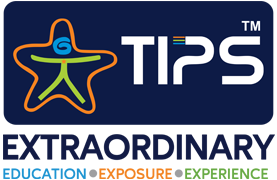- Blog By
Sumita Sen Mazumdar
Principal – Erode KG Campus
The Indian Public School – Erode.
June, 23 2022 | In Blog 

A child experiences their most joyful state when engrossed in play. They will inventively play with anything and everything from their immediate environment, not necessarily toys, apart from engaging in free physical movement as part of their play. Such free play develops a child’s gross and fine motor skills, enhances imagination, creativity and problem-solving skills. Thus, through play, we can actively ensure a child’s physical, social, psychological and intellectual development. The play-way method uses this concept and brings learning to a child through hands-on activities that resemble play. So, play-way is interactive, activity-based learning. It brings about holistic development of the child by creating opportunities to enhance self-expression, creative skills, the physical body and intellect, all through what appears as play to the child. Therefore, it is welcomed by children as a more appealing method of learning over other more pedantic approaches.
CHARACTERISITICS OF THE PLAY-WAY METHOD
- Involves practical hands-on activities to introduce the learning concept.
- Customized to suit the learning needs of individual children.
- Element of freedom instead of conspicuous “pressure” to learn.
- Bringing more of “real-life”, hands-on experiences into learning over theoretical reliance.
- Numerous opportunities for a child to express themselves.
- Each child has identical opportunities for participation.
- Activities are designed to develop both knowledge and abilities.
HOW DOES THE PLAY-WAY METHOD BRING ABOUT HOLISTIC DEVELOPMENT IN A CHILD?
- Social skills development: Communication skills and confidence are effortlessly and naturally developed through play as a child learns to listen, pay attention, understand feelings and share their experiences. When learning though play, children get the opportunity to explore and work with others. They naturally tend to develop their abilities to cooperate, how to take the lead as well as to follow.
- Physical development of gross and fine motor skills: The play-way method of learning ensures that enough movement is integrated into a child’s school day to bring about age-appropriate physical milestones.
- Intellectual development: When children are interested and curious about their learning activity, learning is much more easy, effective and pleasurable. There is intellectual satisfaction.
- Emotional development: Learning through play instead of a more formal setting can have a calming and stabilizing effect on a child’s emotions. In the play-way method, children have enough outlets to express themselves that help them to more easily overcome tendencies of being shy, fearful, moody or overly sensitive. Self-discipline is improved.
- Better teacher-student relationships: Children connect well with their educators in a play-based setting.
- Whole-child development: The play-way method affords strong opportunities for whole-child development, which is all about prioritizing the full scope of developmental needs for a child along with education so that children can achieve to their maximum potential.

CLASSROOM IMPLEMENTATION OF THE PLAY-WAY METHOD
- Based on the curriculum and expected learning outcomes, teachers will prepare the lesson plan which includes
interactive learning activities.
- There is a conscious effort by the teacher in creating a learning environment that children would perceive as enjoyable.
- Learning activities are planned so that they are presented to the children in the order of simple to progressively complex.
- The learn-through-play activity shall be teacher led and supervised.
BENEFITS OF PLAY-WAY IN THE WORLD OF EARLY YEARS EDUCATION
Since play-way activities are designed around the natural urge of a child to engage in play, motivation to learn is much more than in any other method of early years learning.Children are more likely todo assigned work since they don’t feel bored or a sense of toil in the classroom.
Better retention of learning. Play-way is learning by doing rather than by telling. Hence, it is much more easily accepted by the child.
The play-way method incentivizes the development of original thought, creative work, reasoning power and unique problem-solving skills in the classroom setting by offering maximum freedom in a prepared setting.
Children develop self-regulation and better control of impulses through the social and intellectual opportunities provided by the play-way techniques. There is goodwill, concern for fellow mates and a sense of democracy as children learn to cooperate and help each other.





Leave a Reply
You must be logged in to post a comment.